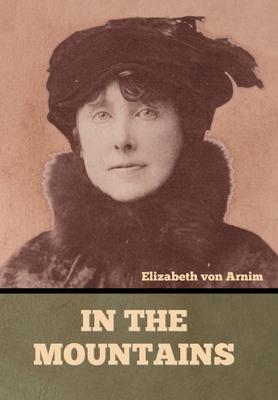With a gentle hand, Elizabeth has created for us a cast of characters who are interesting, funny, loving and many faceted. The book starts out rather slowly and never ramps up to a blazing pace, but is delightful and made me laugh out loud many times. . (Sandy Thomlinson)
About Elizabeth von Arnim:
Elizabeth von Arnim (31 August 1866 - 9 February 1941), born Mary Annette Beauchamp, was an English novelist. Born in Australia, she married a German aristocrat, and her earliest works are set in Germany. Her first marriage made her Countess von Arnim-Schlagenthin and her second Elizabeth Russell, Countess Russell. After her first husband's death, she had a three-year affair with the writer H. G. Wells, then later married Frank Russell, elder brother of the Nobel prize-winner and philosopher Bertrand Russell. She was a cousin of the New Zealand-born writer Katherine Mansfield. Though known in early life as May, her first book introduced her to readers as Elizabeth, which she eventually became friends and finally to family. Her writings are ascribed to Elizabeth von Arnim. She used the pseudonym Alice Cholmondeley for only one novel, Christine, published in 1917.
Arnim launched her career as a writer with her satirical and semi-autobiographical Elizabeth and Her German Garden (1898). Published anonymously, it chronicled the protagonist Elizabeth's struggles to create a garden on the family estate and her attempts to integrate into German aristocratic Junker society. In it, she fictionalized her husband as "The Man of Wrath". It was reprinted twenty times by May 1899, a year after its publication. A bitter-sweet memoir and companion to it was The Solitary Summer (1899).
By 1900, Arnim's books had such success that the identity of "Elizabeth" caused newspaper speculation in London, New York and elsewhere.
Other works, such as The Benefactress (1902), The Adventures of Elizabeth on Rgen (1904), Vera (1921), and Love (1925), were also semi-autobiographical. Some titles ensued that deal with protest against domineering Junkertum and witty observations of life in provincial Germany, including The Princess Priscilla's Fortnight (1905) and Frulein Schmidt and Mr Anstruther (1907). She would sign her twenty or so books, after the first, initially as "by the author of Elizabeth and Her German Garden" and later simply as "By Elizabeth".
In 1909, The Princess Priscilla's Fortnight was turned into a play called The Cottage in the Air, and in 1929 into the film The Runaway Princess, directed by Anthony Asquith and starring Mady Christians.
Although Arnim never wrote a conventional autobiography, All the Dogs of My Life (1936), an account of her love for her pets, contains many glimpses of her glittering social circle. (wikipedia.org)
